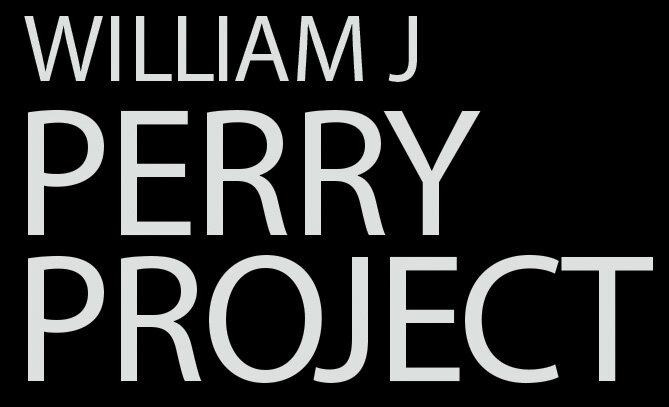
WILLIAM J. PERRY
19TH U.S. SECRETARY OF DEFENSE
In a remarkable career that has spanned academia, industry, entrepreneurship, government, and diplomacy, Bill Perry has dealt firsthand with the changing nuclear threat.
Marked indelibly by the devastation in Japan he witnessed as a young sergeant in the Army of Occupation in the immediate aftermath of World War II, Perry chose a career in defense electronics that put him at the heart of top-secret Cold War reconnaissance of the growing Soviet nuclear forces, an imperative to deterrence and to constraining the already intense arms race.
Dr. Perry was one of the Silicon Valley’s early entrepreneurs, founding a company that pioneered digital technologies in the race to understand the Soviet nuclear missile arsenal.
Perry’s expertise led to frequent requests to advise the government on national security, notably including an urgent summons in October 1962 asking him to serve on the secret team analyzing U-2 photos exposing the Soviet installation of nuclear armed missiles in Cuba, a mission at the nuclear brink Perry believed might well be his last.
Bill Perry served as Secretary of Defense under the Clinton Administration 1994 - 1997
In 2007, Dr. Perry, George Shultz, Sam Nunn, and Henry Kissinger together formed the Nuclear Security Project, and they have published several ground-breaking editorials in the Wall Street Journal that link the vision of a world free from nuclear weapons with urgent but practical steps that can be taken immediately to reduce nuclear dangers.
Perry has said, “A lifetime immersed in special access to and top-secret assessment of strategic nuclear options has given me a unique, and chilling, vantage point from which to conclude that nuclear weapons no longer provide for our security, they endanger it. I now believe it is imperative to share what I as an insider, know and understand about these dangers, and what I think must be done to keep our children and grandchildren safe from the growing nuclear jeopardy.” To implement this imperative, Dr. Perry founded the William J. Perry project in 2013.
Dr. Perry is currently the Michael and Barbara Berberian Professor (emeritus) at Stanford University, and is a senior fellow at the Freeman Spogli Institute, the Center for Security and Cooperation, and the Hoover Institution, and director of the Preventive Defense Project, all at Stanford. He received a B.S. and M.S from Stanford, and a Ph.D. from Pennsylvania State, all in mathematics.
Nuclear Security Project
(l-r) Sam Nunn, Henry Kissinger, William Perry, George Shultz
“Nuclear weapons no longer provide for our security, they endanger it.”
Perry’s appointment as Undersecretary of Defense for Research and Engineering in the late 1970s put him at the helm of crafting a defense strategy that would offset the Soviets’ numeric superiority in conventional forces, essential to shoring up and maintaining overall deterrence in a dangerous time. This new offset strategy ushered in the age of stealth, smart weapons, GPS, and sophisticated technologies and weaponry that changed the face of modern warfare and to this day is fundamental to the security of the United States.
As Secretary of Defense, Perry galvanized efforts to secure nuclear stockpiles (“loose nukes”) inherited by former Soviet states and presided over the dismantlement of more than 8,000 nuclear weapons. Since then he has unrelentingly practiced a unique form of diplomacy that blends his warm personal relationships with officials in many countries with optimism, unflagging energy, and incisive pragmatism in diplomatic initiatives focusing on the world’s most critical security hotspots, including North Korea, Iran, Russia, and China.
Perry serves on several government defense and science advisory panels, and is a board member of several companies developing new innovations in energy and medical technology. He is a husband, father of five, grandfather of eight, and a great-grandfather of four. He continues to travel the world in pursuit of his goal to eliminate the danger of nuclear weapons.
before forever changes
William Perry recounts a lifetime fighting against nuclear danger
Former Secretary of Defense William Perry recalls the advent of the nuclear age, and the lessons he learned throughout his storied career.





